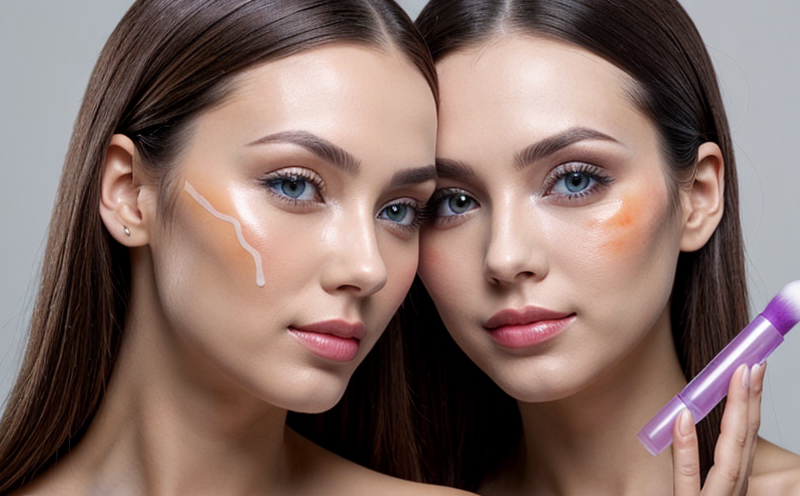Baby Lotion Allergen Testing
The testing of baby lotion for allergens is a critical process that ensures infant safety and compliance with international standards. This service involves identifying potential allergens in cosmetic products, specifically focusing on those intended for babies. The primary goal is to protect infants from adverse reactions such as rashes, eczema, or other dermatological issues caused by contact with harmful substances.
The process begins with the selection of appropriate test methodologies based on international standards like ISO 21786 and IEC 62960. These standards provide a robust framework for evaluating the allergenicity of cosmetic products, ensuring that they meet stringent safety requirements.
Sample preparation is crucial in this testing process. Samples of baby lotion are collected from various sources such as manufacturing batches or market samples. The samples undergo a series of preliminary checks to ensure their integrity and authenticity before undergoing detailed analysis. This includes visual inspection for visible contaminants, pH measurement, and microbiological screening.
The actual allergen detection is carried out using advanced analytical techniques such as liquid chromatography (LC), mass spectrometry (MS), and immunoassay methods. These instruments allow for the precise identification of minute quantities of allergens present in the product. The results are compared against established thresholds set by regulatory bodies to determine whether the lotion meets safety standards.
Reporting is an integral part of this testing service. Detailed reports are generated summarizing all findings, including detected allergens, their concentrations, and compliance with relevant regulations. These reports serve as crucial documents for manufacturers, helping them make informed decisions about product formulation adjustments if necessary.
In summary, baby lotion allergen testing is a comprehensive approach aimed at safeguarding the health of infants by ensuring that cosmetic products do not contain harmful substances. This service plays a vital role in maintaining public trust and complying with global standards for product safety and quality assurance.
Benefits
Implementing baby lotion allergen testing offers numerous advantages to manufacturers, regulatory bodies, and consumers alike. For manufacturers, it provides peace of mind knowing that their products are safe for use by infants. By adhering strictly to international standards, they can avoid legal repercussions and maintain a positive brand reputation.
Regulatory bodies benefit from this service as well since it supports effective enforcement of health and safety regulations. Accurate testing results help in identifying non-compliant products swiftly, thereby protecting public health.
Consumers gain the assurance that the products they purchase are safe for their babies. This trust fosters loyalty towards brands committed to high standards of product quality.
Eurolab Advantages
Eurolab offers unparalleled expertise in baby lotion allergen testing, leveraging state-of-the-art facilities and experienced scientists who specialize in this field. Our comprehensive approach ensures that every aspect of the testing process is conducted meticulously, from sample preparation to final analysis.
We employ cutting-edge technology like high-performance liquid chromatography (HPLC) and tandem mass spectrometry (MS/MS), which provide accurate and reliable results even when dealing with trace amounts of allergens. Our methodologies are consistently validated against international standards, ensuring consistency and reliability in our findings.
Our commitment to quality extends beyond just technical proficiency; we also prioritize customer satisfaction by offering fast turnaround times and clear communication throughout the testing process. With Eurolab, you can rest assured that your baby lotion will undergo thorough and trustworthy allergen testing.
Use Cases and Application Examples
| Use Case | Description |
|---|---|
| New Product Development | Evaluating new formulations to ensure they comply with safety standards. |
| Quality Assurance | Regular testing of existing products to maintain consistent quality and safety levels. |
| Compliance Verification | Verifying compliance with local and international regulations regarding cosmetic product safety. |
| Market Surveillance | Monitoring market trends and competitor activities in terms of allergen content. |
| R&D Support | Aiding research and development teams in identifying potential allergens early in the process. |
| Investigative Testing | Conducting deep-dive investigations into specific complaints or suspected issues with products. |
| Supplier Audits | Evaluating supplier batches for allergen content as part of procurement and supply chain management. |





